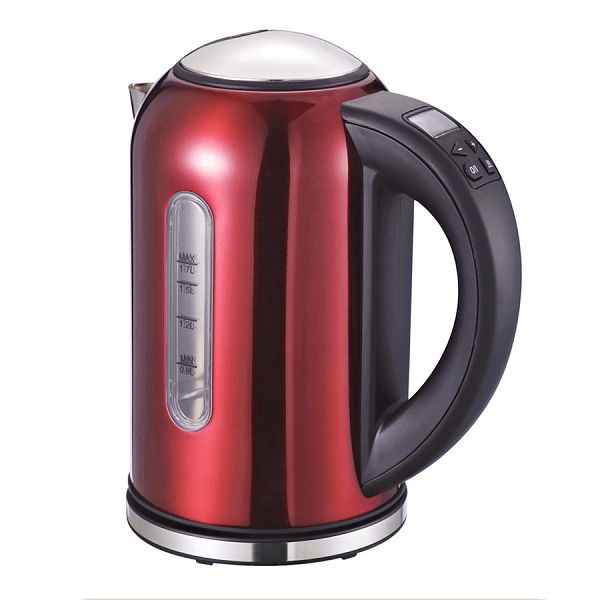

Views: 231 Author: Site Editor Publish Time: 2024-03-01 Origin: Site








Today, we're diving into the age-old debate of electric kettles vs. traditional kettles. Whether you're a busy bee looking for convenience or a traditionalist who enjoys the ritual of boiling water on the stove, we'll break down the pros and cons of each type of kettle to help you make the best choice for your boiling needs.
Let's start with the modern marvel of the kitchen – the electric kettle. These sleek, futuristic gadgets have become a staple in many households for their speed, convenience, and precision.
If time is of the essence in your busy morning routine, electric kettles are a game-changer. With the click of a button, you can have boiling water ready in a matter of minutes, saving you precious moments before rushing out the door.
Another perk of electric kettles is their precise temperature control. Whether you're brewing delicate green tea or robust black coffee, you can ensure the water is heated to the perfect temperature for optimal flavor extraction.
Safety is also a priority with electric kettles, as many models come with an automatic shut-off feature, preventing the water from boiling dry and potential hazards.

However, electric kettles do come with some drawbacks. The cord can limit mobility, meaning you'll need to be near an outlet to use the kettle. This can be a nuisance if you're used to effortlessly moving around the kitchen with a traditional stovetop kettle.
Additionally, the upfront cost of an electric kettle can be higher compared to a traditional kettle, which may deter budget-conscious shoppers.
Now, let's turn our attention to the tried-and-true traditional kettle. These timeless vessels have been a kitchen staple for centuries, offering versatility and a touch of nostalgia to the boiling process.
One of the standout features of traditional kettles is their versatility. Whether you're brewing a cup of tea on the stovetop or heating water over a campfire during a weekend getaway, traditional kettles can handle it all.
Furthermore, traditional kettles do not require electricity to function, making them a reliable option during power outages or outdoor adventures where electricity is not available.
Lastly, the classic design of traditional kettles adds a touch of charm to any kitchen, appealing to those who appreciate a bit of vintage flair in their cookware.
On the flip side, traditional kettles do have some drawbacks. Boiling water on the stovetop can take longer compared to the rapid heating of an electric kettle, which may test the patience of those in a hurry.
Precision temperature control is also trickier with traditional kettles, as you'll need to rely on your own intuition and experience to gauge when the water is at the desired temperature.

Now, let's compare the two contenders to see how they stack up in different categories.
● Energy Efficiency: Electric kettles are generally more energy-efficient than traditional kettles, as they heat up faster and can be more precise with their temperature control, reducing wasted energy.
● Ease of Use: Electric kettles win in terms of convenience and ease of use, requiring minimal effort to get boiling water quickly. Traditional kettles, while charming, may require more attention and time to heat the water.
● Cost Effectiveness: While electric kettles may have a higher initial cost, their energy efficiency could lead to long-term cost savings on electricity bills. Traditional kettles, though more affordable upfront, may consume more energy in the long run.
● Eco-Friendliness: Traditional kettles have the edge in this category, as they do not require electricity to function, making them a more sustainable choice for eco-conscious consumers.
● Taste of Boiled Water: Some believe that the type of kettle used can affect the taste of the boiled water. While this is subjective, it's worth experimenting with both electric and traditional kettles to see if you notice any flavor differences.
So, which kettle reigns supreme in the ultimate showdown? The answer ultimately depends on your personal preferences and lifestyle. If you value speed, convenience, and precision, an electric kettle might be your best bet. On the other hand, if you appreciate versatility, nostalgia, and sustainability, a traditional kettle could be the perfect match for you.
Why not try both types of kettles to see which one suits your boiling needs best? At the end of the day, whether you're Team Electric or Team Traditional, the most important thing is enjoying a perfectly brewed cup of your favorite beverage. Happy boiling!